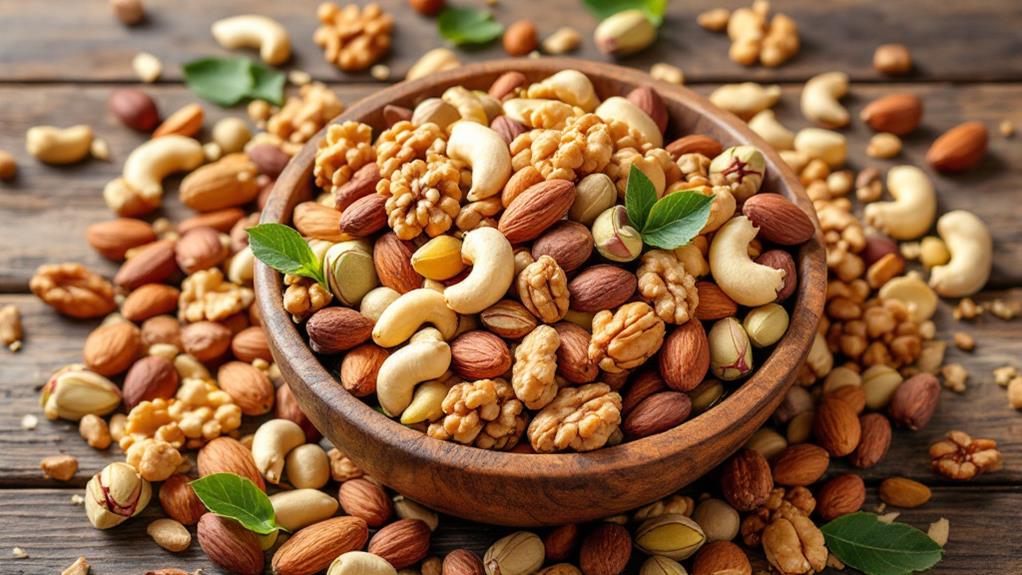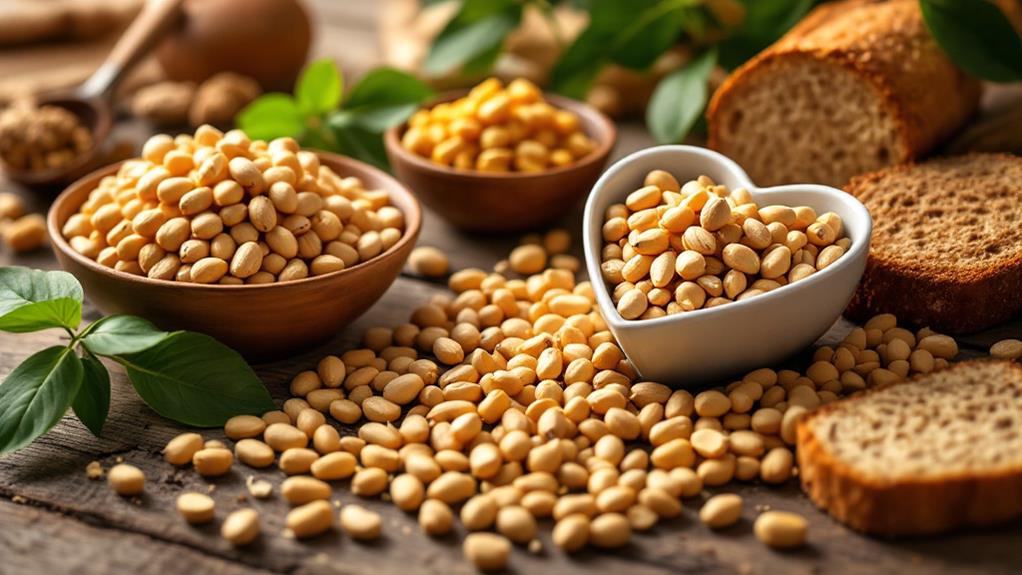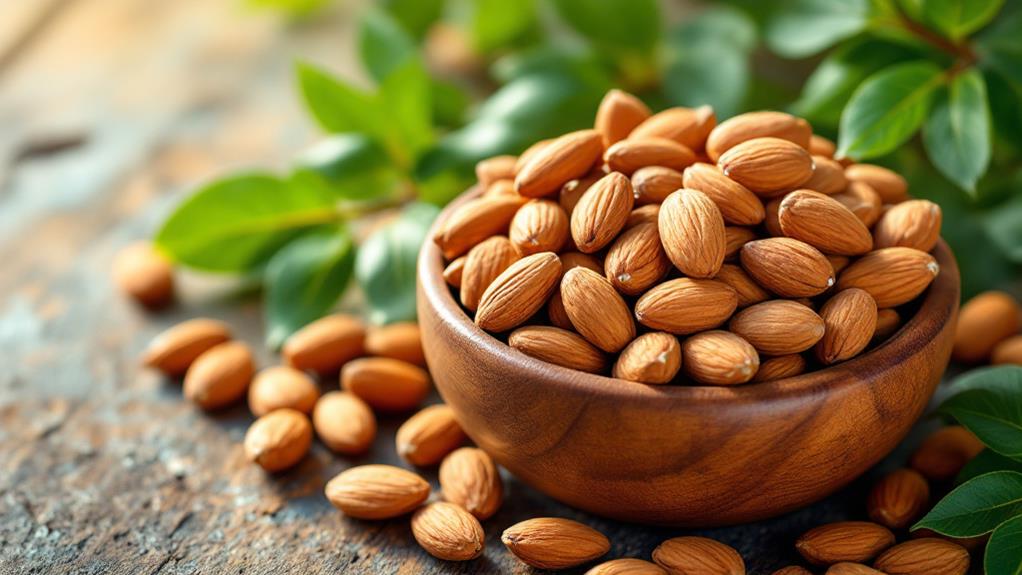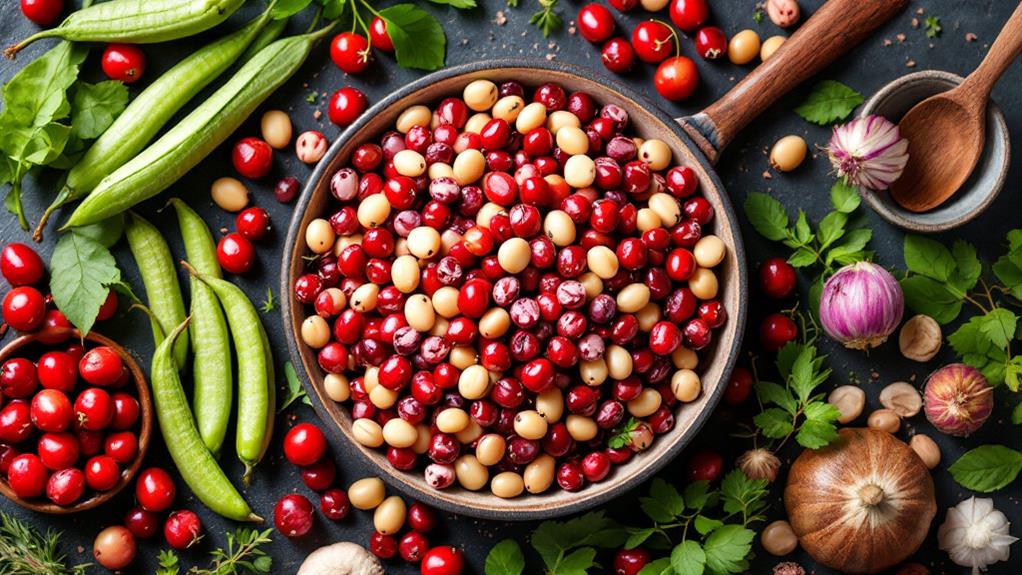The Benefits of Cashew Nuts: A Delicious and Nutrient-Rich Snack
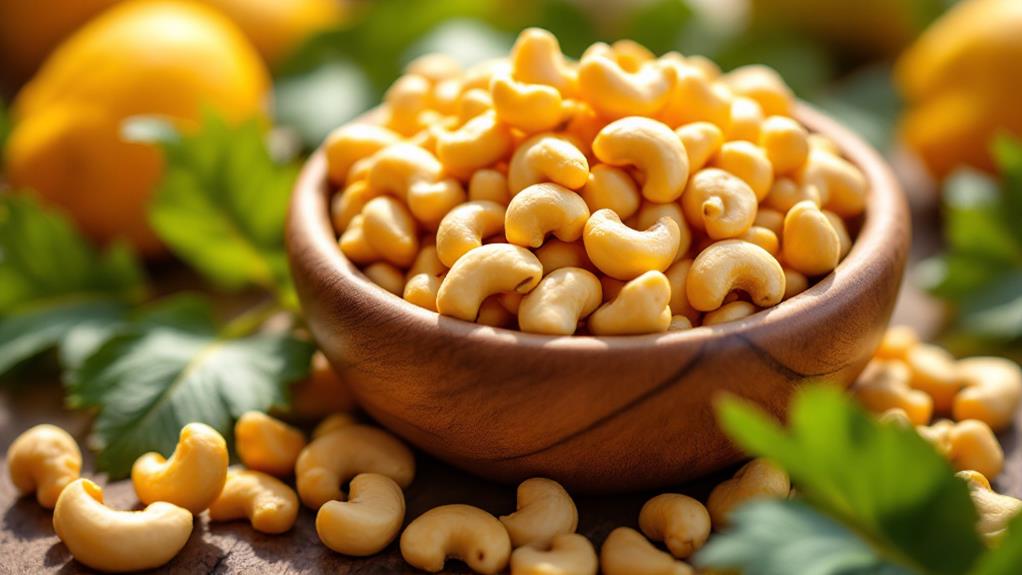
Cashew nuts are a delicious and nutrient-rich choice for snacking. They're loaded with heart-healthy monounsaturated and polyunsaturated fats, and packed with protein and vital minerals like copper and magnesium. You'll find that their high fiber content supports weight management by improving feelings of fullness and reducing cravings. Regularly enjoying cashews can lower LDL cholesterol and even help reduce your cardiovascular disease risk. Plus, they're incredibly versatile in the kitchen, perfect for both sweet and savory dishes. With so much to offer, there's more to uncover about how cashews can improve your health and culinary creations.
Nutritional Profile of Cashews
When you consider the nutritional profile of cashews, you'll find they're a powerhouse of fundamental nutrients packed into a small serving. Cashews are an excellent choice for anyone seeking a nutrient-rich snack. Despite being a calorie-dense snack with about 157 calories per ounce, they offer considerable health benefits. Their high content of healthy fats, mainly monounsaturated and polyunsaturated fats, contributes notably to heart health benefits. These fats can help reduce bad cholesterol levels and improve general heart function.
As a good source of protein, cashews provide 5 grams per ounce, supporting your daily protein requirements. This makes them a great option if you're looking to enhance your protein intake without the need for meat. Moreover, cashews are low in carbohydrates, with only 8 grams per serving and just 1 gram of sugar. This low-carb content makes them ideal for managing blood sugar levels.
You'll also benefit from the important minerals in cashews, such as copper and magnesium. A single ounce offers an impressive 67.7% of the daily recommended value for copper and 17% for magnesium. These minerals play key roles in energy production and bone health, enhancing your general well-being.
Cashew Nuts and Weight Management
Cashew nuts can be a valuable ally in your weight management expedition. They're nutrient-dense, packing about 5 grams of protein and healthy fats per ounce, which can promote feelings of fullness. This combination helps you feel satisfied longer, making it easier to manage your calorie intake. Alongside their protein, the high fiber content in cashews plays a significant role in appetite control. By enhancing satiety, cashews can help reduce cravings for unhealthy snacks, steering you towards better eating habits.
Interestingly, studies show that nut-rich diets, including cashews, often lead to more significant weight loss compared to nut-free diets. This suggests that incorporating cashews into your meals can be an effective strategy for weight management. Plus, due to their fibrous wall, your body absorbs only about 84% of the calories from cashews, which means you can enjoy them without worrying about excessive calorie intake.
Heart Health Advantages
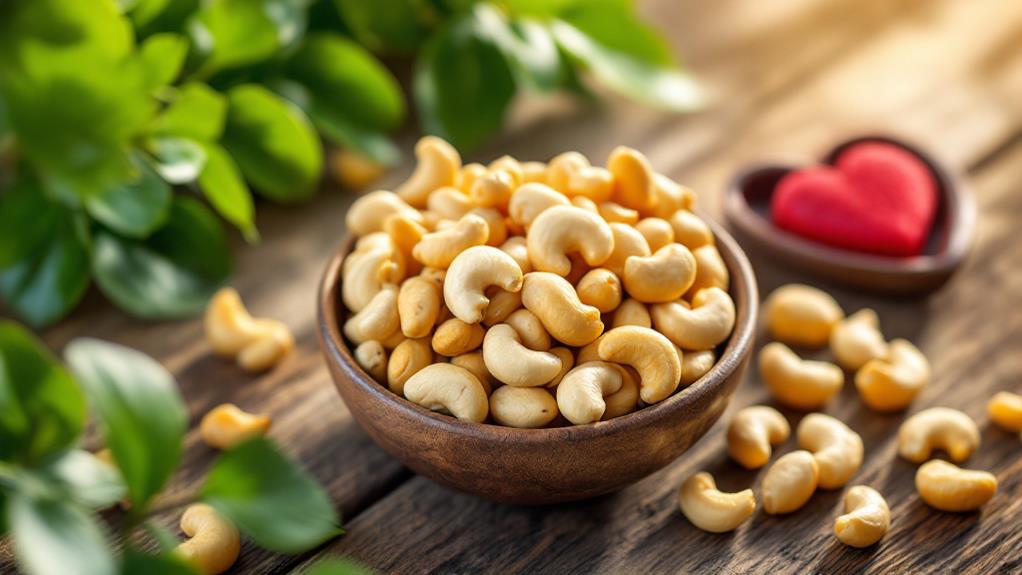
Incorporating cashew nuts into your diet can greatly benefit your heart health. Their rich content of monounsaturated and polyunsaturated fats helps improve your cholesterol levels, reducing the risk of cardiovascular disease. These healthy fats are fundamental for maintaining a well-balanced cholesterol profile. Here's how cashews can boost your heart health:
- Lower LDL Cholesterol: Consuming cashews regularly is linked to reduced LDL cholesterol levels, which are often called "bad" cholesterol. Lowering these levels can greatly decrease your risk of heart disease.
- Increase Magnesium Intake: Cashews provide around 83 mg of magnesium per ounce, a significant mineral for regulating blood pressure. Adequate magnesium levels support comprehensive heart health and contribute to cardiovascular wellness.
- Antioxidant Protection: Cashews are packed with antioxidants, especially polyphenols, that protect your heart from oxidative damage. These antioxidants play an important role in preventing heart-related issues.
- Reduced Cardiovascular Risk: Studies indicate that including cashews in your diet may lead to a 19% reduction in the risk of cardiovascular disease. This impressive stat highlights the health benefits of making cashews a regular snack.
Culinary Uses of Cashews
While cashews are celebrated for their heart health benefits, they also shine in the culinary world. You can enjoy cashews raw or roasted, making them a versatile snack that adapts to your flavor preferences. When roasted, cashews develop a rich taste and can be seasoned with your choice of spices, providing a personalized touch to their already delightful flavor. Their satisfying crunch and creamy texture make them a perfect supplement to dishes like stir-fries, soups, and salads, providing both nutritional value and a pleasant bite.
Cashew butter, crafted by blending roasted cashews, serves as a healthy and delicious spread for toast. It's also a fantastic ingredient to use in smoothies or energy balls if you're looking to elevate your snack game. But cashews don't stop there. In vegan culinary applications, they can be transformed into creamy, dairy-free alternatives for dressings, sauces, and desserts by blending them with vinegar or lemon juice. Roasting cashews at home not only improves their flavor but also raises their antioxidant levels, allowing you to control oil and salt content to suit your dietary needs. Accept cashews' versatility and enjoy their culinary magic.
Choosing and Storing Cashews
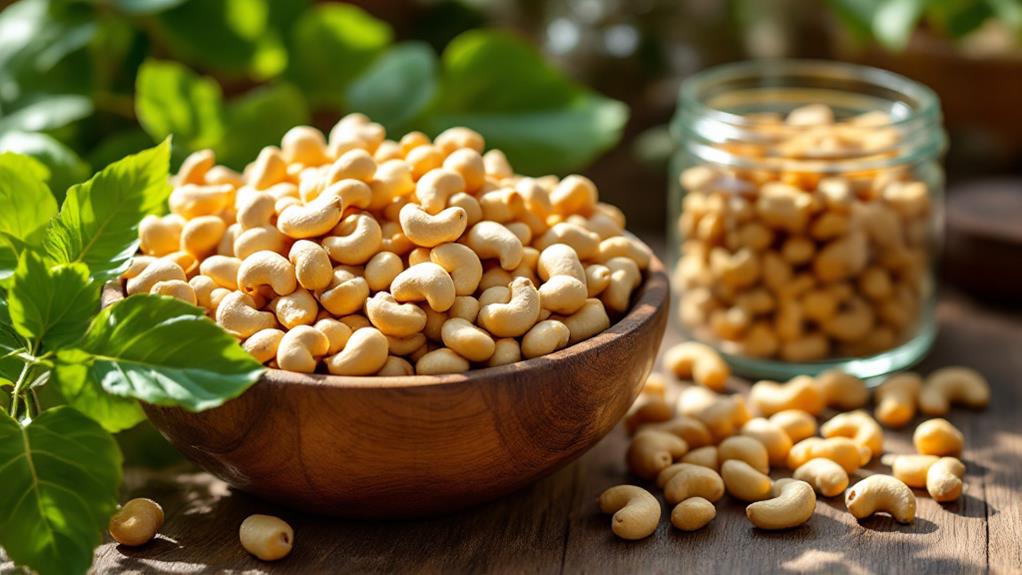
When selecting cashews, it's essential to opt for raw or unsalted dry roasted varieties to steer clear of added oils and high sodium levels that can diminish their health benefits. These choices guarantee you're enjoying the nuts at their finest nutritional quality. Pay close attention to packaging labels for any added ingredients, as excess salt, sugar, or unhealthy fats can sneak in. Here's a quick guide to help you choose the best cashews:
- Raw Cashews: Choose these for maximum health benefits and versatility in recipes.
- Unsalted Cashews: Ideal for controlling sodium intake and enjoying the natural flavor.
- Check Labels: Verify no added ingredients compromise the nutritional quality.
- Expiration Date: Always consume before this date for peak freshness.
For storage, keep your cashews in an airtight container in a cool, dry place to maintain their freshness and prevent them from turning rancid. If you're planning for long-term storage, refrigeration or freezing is recommended to extend their shelf life. This helps preserve the nutritional quality and keeps your unsalted cashews tasting great. Remember, while rancid nuts generally aren't harmful, their taste can be unpleasant, so consuming them before they spoil is best.

